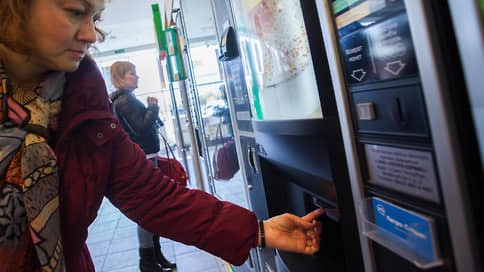The structure of Kievskaya Ploshchad invested in automated trading
[ad_1]

A large owner of commercial real estate, the Kyiv Ploshchad Group of Companies owned by God Nisanov and Zarakh Iliev, has invested in a new business. The group’s structure received a stake in a company that rents space in the Moscow metro for vending machines. Transport hubs provide high traffic, but consumers in the metro are sensitive to food and drink prices.
Rynok Sadovod LLC, controlled by the structures of the Kyiv Ploshchad Group of Companies, became the owner of 10% of Express LLC, which is engaged in placing vending machines in the Moscow metro. Changes to the Unified State Register of Legal Entities were made on August 15. Another 40% of Express belongs to Elena Dmitrienko, the rest is owned by JSC Intersectoral Investment Agency (MIA). The latter signed an agreement with the metro in 2016 for the placement of non-stationary retail facilities.
“Kyiv Square” of God Nisanov and Zarakh Iliev is one of the main owners of commercial real estate in Russia. The group’s assets include the Ukraina Hotel, the Evropeisky shopping center, the Depot food malls, the Food City and Sadovod markets. According to Forbes, in 2022 the group received rental income of $1.6 billion. At Kievskaya Ploshchad, Kommersant’s questions were redirected to Sadovod, where no comment was provided. MIA Kommersant also did not respond, and it was not possible to contact Express by phone.
In 2020, Express became the only participant and winner of the tender for the placement of 85 multifunctional modules on the territory of the Moscow metro for a period of ten years, as follows from documents on the OTS trading platform. According to the terms of the purchase, modules can be equipped for the sale of snacks, souvenirs, soft and hot drinks, etc. In 2022, Express’s revenue increased by 36.8%, to 305 million rubles, net profit was 15 million rubles.
Transport hubs with high traffic are considered one of the most profitable locations for placing vending machines in terms of the number of potential buyers, says Sergey Kaledin, operating director of Uvenco Group of Companies. According to him, it is not easy for operators to get into such zones, and the profitability of the business largely depends on the established rental rate. Subway passengers are also more sensitive to prices than office employees or passengers at airports, Mr. Kaledin notes. According to him, the time people spend at metro stations is limited, so snacks, sandwiches, pastries and soft drinks are popular there.
General Director of Infoline-Analytics Mikhail Burmistrov notes that the increase in passenger traffic in the Moscow metro due to the active opening of new stations should have a positive impact on the turnover of vending machine operators. But in general, the expert points out, the growth of the Russian vending market is slowing down, partly due to the limited operation of some airports. The European Vending Association predicts an increase in the turnover of the automated trading market in Russia in 2023 by 15%, to 75 billion rubles, year on year.
Due to the sharp rise in exchange rates and tightening sanctions, vending machine operators today are experiencing difficulties with the supply of equipment and spare parts, says Vadim Shilenko, general director of the Megas operator. According to him, if previously a large share of the market fell on Italian machines, now there is a reorientation towards Chinese ones, which may be inferior in quality.
Sergey Kaledin says that the number of classic vending machines at Uvenco varies slightly from year to year. According to him, the group now manages more than 15 thousand machines, including more than 1.1 thousand self-service cafes in offices under the Self brand. Vkusville said that the company’s network of vending machines today includes almost 530 devices with food and drinks, of which 10% are installed at MCC stations, as well as about 100 coffee machines. According to a representative of the network, revenue in this segment is growing by 50% year on year. As Vkusville notes, automated trading is in demand in places where people are limited in time and choice of alternatives. Distribution centers, educational institutions and transport hubs are considered promising locations there.
[ad_2]
Source link





